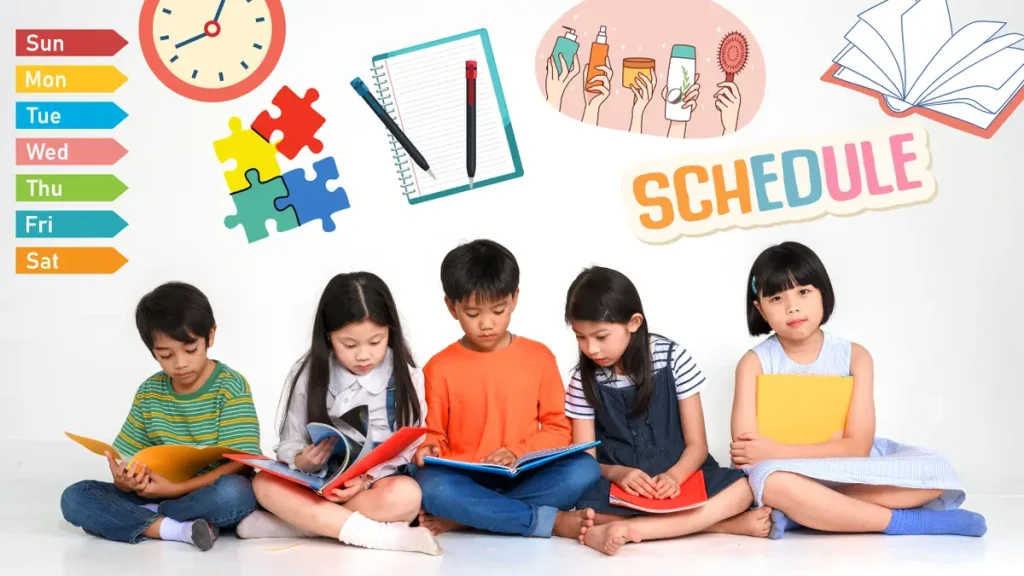How Daily Routines Support Preschoolers’ Learning and Growth

A structured daily routine isn’t just about keeping things on schedule—it’s about creating an environment where preschoolers feel safe, confident, and ready to learn. In the early years, consistency and predictability play a vital role in helping children develop essential life skills, emotional regulation, and a strong sense of security. Let’s explore why daily routines matter and how they can help preschoolers thrive both at school and at home.
1. Why Routines Matter in Early Childhood
Preschoolers are at a stage where their brains are developing rapidly. Routines provide the structure they need to understand the world around them. Knowing what to expect gives children a sense of control, which reduces anxiety and behavioral issues. A well-organized day helps build confidence, independence, and trust in their caregivers and surroundings.
2. Key Daily Routines That Foster Development
a. Morning Wake-Up and Hygiene
A consistent morning routine sets the tone for the day. Activities such as brushing teeth, washing hands, and getting dressed teach personal hygiene and self-care skills. It also helps children mentally prepare for the transition from home to preschool.
b. Nutritious Meals and Snacks
Regular meal and snack times help stabilize energy levels and mood. Including healthy food options introduces children to balanced eating habits early in life. Making meals part of the routine also teaches patience, sharing, and social interaction.
c. Circle Time and Learning Activities
Structured learning periods like circle time, storytelling, and group discussions promote communication skills and cognitive development. Repeating these daily boosts memory, participation, and classroom engagement.
d. Outdoor Play and Physical Activity
Physical play is crucial for motor development, creativity, and stress relief. A daily routine that includes time for playground activities or nature walks encourages fitness, teamwork, and problem-solving.
e. Nap or Quiet Time
Rest is essential for brain growth and emotional balance. A scheduled nap or quiet time helps children recharge, improving focus and behavior later in the day.
f. Creative and Free Play
Allowing time for imaginative and unstructured play supports emotional expression and independence. Whether it’s building with blocks or role-playing, children learn problem-solving, decision-making, and storytelling through play.
g. Goodbye and Pickup Routine
A consistent end-of-day routine helps children transition smoothly from school to home. Simple rituals like tidying up, reflecting on the day, or saying goodbye to teachers provide closure and build responsibility.
3. Consistency at Home and School
When parents and educators work together to align routines between home and school, children benefit the most. Sharing schedules, using similar cues (like songs or visual charts), and maintaining consistent sleep and meal times reinforce good habits and emotional stability.
4. Tips for Parents and Caregivers
- Use visual schedules with pictures for younger children
- Give gentle reminders and countdowns before transitions
- Celebrate small successes in routine-following
- Be flexible but consistent—routine doesn’t mean rigid
- Talk positively about what’s coming next in the day
Interesting Read
Conclusion
Routines may seem simple, but they’re powerful tools in early childhood development. By building dependable daily structures, we empower preschoolers to navigate their world with confidence, curiosity, and resilience. A thriving child is often one who knows what comes next—and feels safe and supported every step of the way.

Why the First 5 Years Decide 90% of Your Child’s Brain Development - preschoolsofindia.com
22 December 2025 at 17:06[…] How Daily Routines Support Preschoolers’ Learning and Growth […]